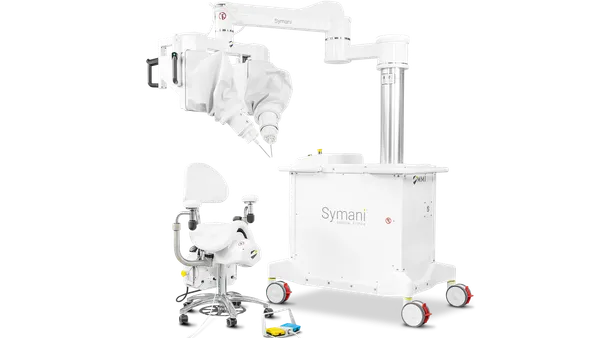Dive Brief:
- Boston Scientific announced Monday it gained FDA approval for new labeling for its ImageReady MRI Vercise Gevia Deep Brain Stimulation System, which enables patients to be eligible to receive a full-body MRI.
- The system is intended to help treat Parkinson’s disease symptoms such as muscle spasms, speech disorders and swallowing disorders through bilateral stimulation as an adjunctive therapy when the medication does not adequately control them.
- The company’s neuromodulation unit sales were flat year-over-year, but the Vercise DBS system had "excellent growth … which offset the weaker spinal cord stimulation results," CEO Michael Mahoney told investors during Boston Scientific’s second quarter earnings call.
Dive Insight:
FDA approved the Vercise Gevia with Cartesia Directional Lead in January 2019, two years after the agency first approved the original Vercise DBS System.
The device was studied in a prospective, multi-center, double-blinded randomized controlled trial, which found a 48% improvement in motor function over two years.
Robert Gross, the chair of Emory University’s neurosurgery department, said in the Boston Scientific announcement the expanded labeling could help address patient needs as Parkinson’s disease progresses. Gross has received more than $500,000 in payments since 2013 from companies including Medtronic, NeuroPace and Boston Scientific.
"Customizable therapy, battery life, the size of the device, and access to MRI are factors patients should talk to their doctor about when they are considering deep brain stimulation," Gross said.
Boston Scientific’s neuromodulation unit contributed $204 million during the second quarter, up $2 million from 2018. Mahoney told investors the full-body MRI labeling FDA approval would come during the second half of 2019.
"We continued to see excellent momentum in DBS due to market receptivity to our Cartesia Directional Lead in the U.S. and Europe," he said.












